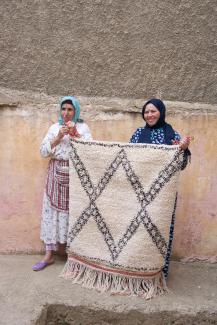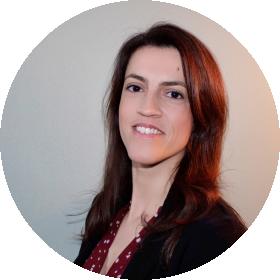
In order to perform your work effectively as a cultural attaché or officer, it is essential to understand the local context. What are the trends, who's who, what works and what doesn't work? And where does supply meet demand?
The policy plans of your mission should be the starting point. This means the plan for your cultural work, but also the broader multi-annual and year plans. Check the priority sectors and specific targets to understand what you should be looking for. Furthermore, you can check the plans of the different cultural funds in the Netherlands. It is highly advisable to see which of these funds have designated your country as a priority. Try to find out which organisations are working with your country and why they consider this country to be of interest. With all this information in mind, it's time to start exploring the possibilities for international cultural cooperation.
Some tips & tricks
- map out the local cultural sector. Compose a calendar of the most important cultural manifestations, festivals and events. Make a list of the interesting cultural organisations: from large and influential institutions to smaller and more informal organisations and influential cultural actors. In some countries, it’s a good idea to get to know journalists and to become acquainted with the media that also publish on cultural affairs.
- talk to the cultural attachés of other missions (of like-minded countries). Since they find themselves in a similar situation, you can learn (about the local context) from them. Depending on the type of project, it might also be worthwhile to see if you can cooperate, for instance when a cultural project addresses topics that are sensitive in the local context.
- find out what the traditionally strong sectors are in your country. The local government might also want to invest in some upcoming sectors. It is key to be aware of this if you're looking to link up supply and demand.
- don’t reinvent the wheel but see what has been done in the past. You can get a general idea of what worked and – perhaps more importantly – what didn’t (and why). To get an overview of activities and collaborations that occurred previously, there are several sources to consult: the country advisor at DutchCulture, the DutchCulture database, your contact person at ICE, your contact person at OCW. And of course, your colleagues at the mission and your predecessor.
- meet everybody! And we mean, everybody. The only real way to find out what's going on is by talking to the right people. Attend openings and network opportunities. Some tricks to keep in mind during these conversations:
- ask many questions, be open, show interest in the work of the cultural actor or organisation.
- with your priorities in mind, ask your interlocutor who they would suggest you should meet. Maybe they can even make an introduction.
- have some inspiring Dutch examples ready, preferably of the type of cooperation you are looking to stimulate.
- know what you can offer: from the resources available at your mission, but also opportunities in the Netherlands (visitors’ programmes/matchmaking, knowledge and network at DutchCulture/funding for internationalisation at the different cultural funds etc.). International visitors programmes – for instance at DutchCulture – are a perfect way to create commitment from influential cultural actors in your country; keep this in mind when you meet potential partners. - maintain and support your network. Don’t let good contacts go to waste. Try to meet them at their events, invite them to your events.
Cultural differences
A good understanding of the cultural context you're operating in is vital to the success of your work. You may encounter different customs, a different language, and different ways of engaging in cooperation. But how do you fathom this different context? And what can you do to work effectively within this context? Learning about these different circumstances and the environment you are operating in will increase the effectiveness of your efforts. Furthermore, it is very important to be aware of the cultural sensitivities and do's and don’ts. In order to understand this, you need to understand where your interlocutors come from. Therefore, we recommend the following:
- read about the country you'll be working in; your colleagues and country advisors will most definitely be able to recommend some good books about the history and current affairs. It will give you some background on the societal context and make you more aware of the cultural climate.
- try to develop intercultural sensitivity: be aware of cultural differences, and know that your preferable approach might not always work as well in a different context. Be aware of your own position: not just your hierarchical position in a professional context, but also your position in society.
- if possible, try to learn (a little bit) the language. It shows commitment, interest and will help you understand the local situation better.



